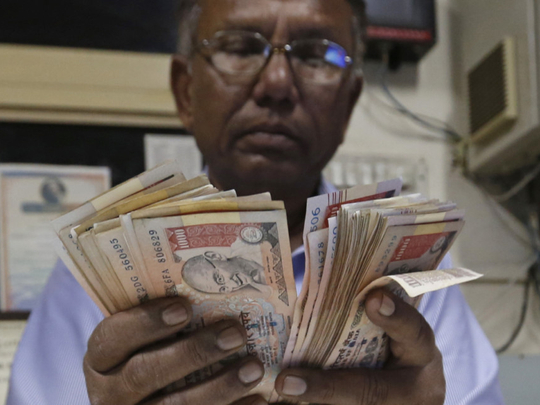
Dubai: If you are an Indian expat and are wondering what to do with your wads of the just scrapped Rs 500 and Rs 1,000 notes from back home, there is no need to fret.
Money exchanges in the UAE may have stopped accepting Indian currencies of any denomination soon after Indian Prime Minister Narendra Modi announced the demonitisation of Rs500 and Rs1,000 notes on the evening of November 8, but there is a way out to ensure they don’t go waste.
Sudhir Shetty, CEO of UAE Exchange, one of the biggest money exchanges in the UAE, told XPRESS, “Expats have the option of taking the Indian currency notes to any bank in India and either get them exchanged for fresh notes or deposit the money in their accounts till December 30. Non-resident Indians can take up to Rs25,000 at a time.”
He said beyond the December 30 deadline for the surrender of old notes (from November 10), Indian expats can approach specified Reserve Bank of India (RBI) offices across India to do the needful till March 31, 2017. “After March 31 too, there will have to a solution and we expect specific guidelines to be issued going forward.”
Public domain
The Indian Consulate in Dubai said information on this issue is available in the public domain - on the websites of the Indian Ministry of Finance and Reserve Bank of India.
Indian authorities have clarified that non-resident Indians can deposit their scrapped notes in their NRO accounts while foreign tourists can purchase foreign exchange equivalent to Rs5,000 using these notes at Indian airport counters by presenting proof of purchasing the notes.
But is there no way Indian expats can exchange the scrapped notes here in the UAE?
Sudhesh Giriyan, COO, Xpress Money, said, “Currently, there is no such provision made by any financial institution here.”
Asked how the Indian prime minister’s move would impact non-resident Indians, Giriyan said, “I would say it’s a bold and commendable move by the Indian Government to tackle black money.” Shetty said, “By this one decision, the entire pool of black money which is not in the legal channels will be wiped out. Inflation will come down and so will the cost of living. The scrapping of the Rs500 and Rs1,000 notes will ensure that counterfeit currencies of this denomination, which had affected the value of the rupee, will be gone.
More and more people will do non-cash transactions which will boost tax collection. When the economy does well and there is less corruption and greater transparency, it will encourage investments and will benefit overseas Indians.” Adeeb Ahamed, CEO, Lulu Exchange, said, “It is a very significant move to curb the spread of black money and corruption in the country. It is an important step towards cashless payment in the form of online, card and mobile transactions. It will strengthen the Indian government’s Jan Dhan Yojana and increase bank account enrolment by citizens.”
He said there would be an initial hesitancy to embrace this change but will clear out over time.
“In the case of expats, there would be a limited impact since it would affect only those who have the particular denominations in hand that have gone out of circulation.”
– With inputs from Abhishek Sengupta, Staff Reporter









